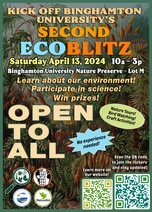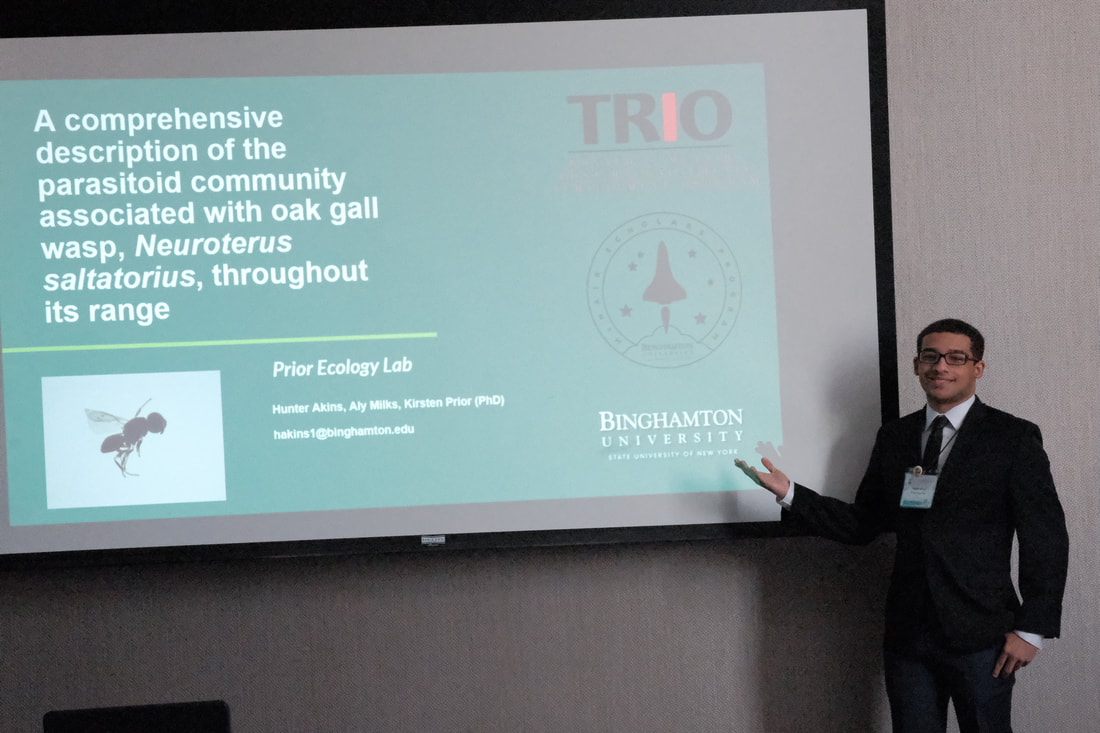|
Human activities dramatically alter biodiversity, leading to the un-tangling and re-tangling of “Darwin's tangled bank.” Reassembled communities and altered species interactions affect population, community, and ecosystem processes.
Our team examines how anthropogenic change, including invasive species, climate change, and land-use change alters biodiversity, species interactions, and ecosystem functions. We also explore solutions for mitigating impacts to conserve diversity and ecosystem functions. Check out our research page for more information about what we do. |
We also engage in community outreach towards our efforts to discover and appreciate the biodiversity of insects - or the "little things that run the world!"
|
Team highlights
2024Our lab is participating in running BU's 2024 EcoBlitz! We will also host BUgs! tables - with insect ID station, kids activities, and to promote our graphic novel on seed dispersal!
Congratulations to Undergraduate Hunter Akins, for winning a Provost Award for Excellence in Undergraduate Research! We welcome new graduate student, Kathy Fridrich, who is using genetic tools to discover cryptic interactions & diversity in oak gall wasp-parasitoid communities. 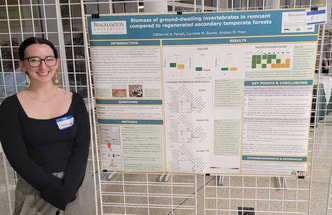
Aly, Rosebelle, Chris, Catherine, and undergraduate John Burns presented at the BGSO Symposium! Catherine won best poster! - "Biomass of ground-dwelling invertebrates in remnant compared to regenerated secondary temperate forests"
|
2023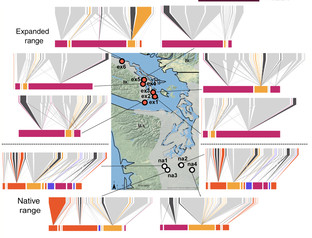
We welcomed two new graduate students! Chris DeAngelis, co-advised with the Powell lab, who works on uncovering functionally important diversity in a species complex. Catherine Farrell is interested in impacts of land use history on seed dispersal.
New collaborative paper in Evolution reveals that insect host shifts to new niches contribute to parasite diversification. "Speciation in kleptoparasites of oak gall wasps often correlates with shifts to new tree habits, tree organs, or gall morphospace" New paper in Diversity & Distributions suggests that altered interactions with generalist parasites contribute to high niche opportunties for a range-expanding host. "Host enemy interactions provide limited biotic resistance for range-expanding species via reduced apparent competition." Many lab members contributed, including Dylan Jones, who lead the analysis. |
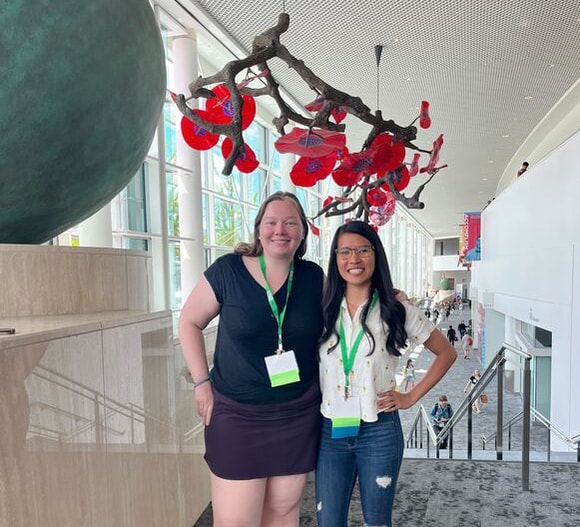
Aly and Rosebelle presented at the Ecological Society of America conference in Portland. Aly presented on uncovering altered tritrophic interactions under range expansions. Rosebelle presented on measuring inter to intraspecific variation in thermal tolerance in the Aphaenogaster species complex.
Undergraduate student, Hunter Akins, won a McNair Summer Scholarship, allowing him to pursue research for his Honor's thesis on describing describing parasitoid community of N. saltatorius using molecular tools. He presented his work at a national conference.
|

